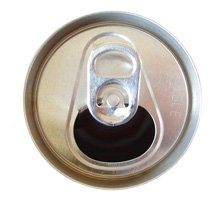The Best Stress Management Tips
As a yoga teacher for 24 years, I helped my students with stress management tips and I helped them relax. When I started a beginners' class I went around the room and asked them why they were there and what they wanted to get out of the class. Inevitably the answers were the same. " I need to relax." "I need to relax." they all said.
As a naturopath I am aware that many, or perhaps most, of my clients' ailments are stress related.

In today's fast-paced lifestyle our stress levels are extremely high, even from a young age. Performance pressure from all sides -
job insecurity, deadlines, heavy workloads, financial worries, eating on the run, juggling family and career... all require good stress management techniques.
Stress is cumulative. It is not necessarily the big stresses that are damaging, but more the accumulation of small stresses in our daily lives. This chronic stress can lead to serious illnesses.
Proactive ways to better manage stress
One of the most beneficial techniques you can learn to add to your stress management tips is deep abdominal breathing.
Yoga is one of the best known stress reducers.
Another tool is to develop mindfulness - to be able to respond rather than automatically react in stressful situations.
Another is practicing meditation or learning deep relaxation techniques.
These are both extremely beneficial stress management tips.
To alleviate stress at work, stretching at your desk is beneficial for both your body and your mind.
Natural Physical Reactions of Stress on the Body:
1. Adrenal glands secrete cortisol. If stress levels are constantly high, the constant release of cortisol destroys the body’s resistance to stress.
2. Thyroid gland secretes more hormones into the blood. This can cause an acceleration in the body’s metabolism, which in turn causes nervousness, agitation, insomnia, exhaustion and burn-out.
3. The hypothalamus releases endorphins. This is a “well being” hormone. Chronic stress can deplete our reserves.
4. Sexual hormones decrease, which can lead to sexual difficulties and reduction in sex drive.
5. The digestive system shuts down. Stressed people often eat on the run under stress, which causes digestive problems, indigestion, gas, nausea, cramps, constipation or diarrhea. Stress decreases the body's ability to produce digestive enzymes.
6. High sugar levels in the blood and high levels of insulin being secreted in order to try to reduce sugar levels can lead to hypoglycemia and diabetes, as well as increased sugar cravings and increased amounts of sugar consumed, aggravating the problem further.
7. Liver produces increased amounts of cholesterol. If this is chronic, it can eventually lead to deposits in the arteries and blocked arteries.
8. Heart rate increases. Repeated stress can cause cardiac problems.
9. Blood becomes thicker, leading to heart attack or stroke.
10. PMS and menopausal symptoms are increased.
11. Body becomes overly acidic, leading to calcium and minerals being leeched from the body, which can result in osteoporosis, inflammation and disease.
Often it is not the stress itself that is the problem, but how you react to it, which is why two people can undergo the same traumatic event and one, who is good at using stress management tips, can come out unscathed while the other is completely devastated.
Here are some of the maladaptive coping mechanisms we use when confronted with stress.

Which ones do you use?
- Overeating
- Sugar addiction
- Overwork
- Drugs, Alcohol
- Cigarettes
- Caffeine
- Food
- TV
- Computer
- Being busy
This leads to:
- Decrease in energy
- Decrease in drive
- Depression
- Illness
- And Breakdown
Creating Balance - The Pie of Life
Here is an exercise for you to do. Take a blank piece of paper and draw a large circle. Now cut the "pie" into 6 pieces, proportionally representing how much time you spend on each of the following;
1.Love/ Adventure/ Fun
2.Friends
3.Work
4.Exercise
5.Family/ or Spirituality
6.Relaxation
Are there some areas of your life that you are neglecting? Do you need to increase the amount of time you spend having fun, exercising or relaxing? Yes, I know you are busy, but I am a firm believer that we create the time for the things we want to create the time for. Do you have time to watch TV? Could you put that time to better use? Determine a plan for yourself to help create the time you need to do things for you. Take time for yourself.
Avoid Nutritional Stress:
- Eating refined, processed foods and transformed foods
- Overeating
- Not eating enough
- Skipping meals
- Eating too quickly
- Eating when stressed
Other Stress Management Tips:
- Avoid stimulants: coffee, tea, energy drinks, etc.
- Find enjoyable exercise
- Adequate, sound sleep
- Create healthy, harmonious relationships
- Detox body and house
- Time management
- Manage your finances - Did you know there is a direct correlation between financial stress and weight gain ?
- Take time to relax
- Talk it out
- Become aware of emotional baggage that you might project onto situations. These may have nothing to do with the situation itself, but everything to do with past disappointments, fear of the future, etc.
At work:
- Make wise use of breaks and lunches,stretch, get up, do what makes you feel good.
- Build bits of physical exercise into your day; take the stairs, walk, lunch time exercise.
- Plan ahead.
- Fight monotony. If you can, make some changes.
- Often we make negative assumptions when we encounter difficult people. We can choose to make compassionate assumptions, although with some people you have to be very creative!
Using your stress management tips will help you handle the daily unavoidable stresses that life sends your way.
